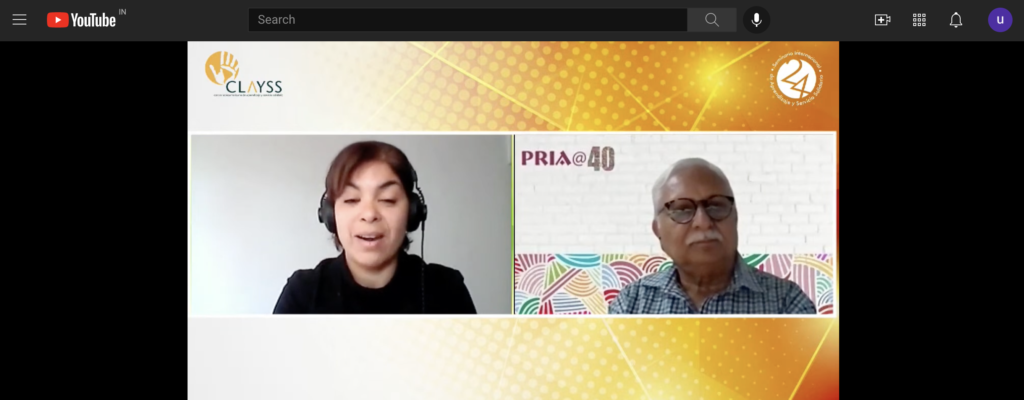Date/Time
Date(s) - 26/08/2021
10:30 pm
Categories No Categories

Dr. Tandon began his presentation by stating that the Pandemic had enormous impacts on India and South Asia. Educational institutes in India were shut down in March 2020 and are yet to open. When pandemic began, 24% of India had access to the internet. This means that 3/4th of India had no access to learning possibilities, including rural, indigenous and urban informals. Staying home and continuing to learn for 18 months without assessment continues to cause enormous mental stress to young people. India has a young demographic and by next year we will be the largest youth population in the world.
Yet opportunities to demonstrate solidarity and collaboration have been taken up by young people. The Youth-n-Democracy Program at PRIA which looks at democracy in every day life had started its new term before the lockdown. The young people part of the cohort decided to alter their community action projects towards local challenges in their neighbourhood, including offering assistance for mask making and ways to conserve water among informal settlements. They turned their work into meaningful projects for supporting communities around them.
As the lockdown began, informal migrant workers lost their jobs overnight. They began to return home and their home states did not want them back for fear of contracting Covid-19. Young people from Higher Education Institutions began working with these migrant workers and supporting them in several ways. Some young people prepared temporary quarantine facilities outside villages near the small towns, facilitated providing them food, water and engaged with government agencies for bridging information asymmetries. This was done spontaneously by them and through these efforts, they demonstrated their commitment to social solidarity and community engagement. PRIA works with domestic workers who were one of the most disadvantaged during the pandemic. Through surveys with domestic workers, PRIA were able to put across their challenges and needs to the general public and key stakeholders. Through community and resource mobilization and with the help of young volunteers PRIA were able to provide support to 6000 households.
This year the UNESCO General Conference will take place in November where it will formally adopt the UNESCO Recommendation on Open Science, and Dr. Tandon urged participants to actively engage in the conference. The second development next year in May is the Third World Higher Education Conference, where there are three themes which are of particular relevance- Pandemics and higher education; SDGs and Higher Education and Higher Education and Social Inclusion. These three themes are of a lot of interest for students towards partaking engaged learning and engaged research. Dr. Tandon appealed to the participants to not just hold deliberations on these themes, but also engage with the National and State Ministries of Higher Education to shape policy in a meaningful way.
Find full recording here:
Find Dr. Tandon’s Powerpoint presentation here.
Find Flyer here:
Find agenda here:




